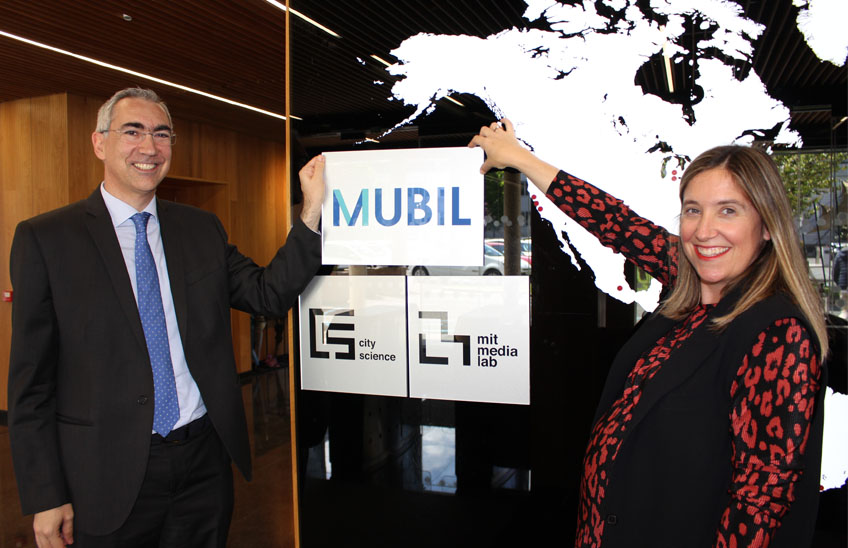MUBIL and Tecnun sign an agreement agreement to start up the "City Science Lab Gipuzkoa".
The new laboratory of research will work on sustainable mobility projects and will be part of the international network driven by MIT average Lab in Boston.

11 | 05 | 2023
Tecnunthe School of Engineering of the University of Navarra, and MUBIL Fundazioa, a center for intelligent and sustainable mobility , have signed an agreement agreement to set up the "City Science Lab Gipuzkoa", an innovation laboratory focused on projects to improve mobility. This new laboratory , which will be located at the headquarters of MUBIL and Tecnun, was born from the agreement that the Provincial Council of Gipuzkoa, MUBIL and the group City Science of the average Lab of the high school Massachusetts Institute of Technology (MIT) signed in Boston at the beginning of March, and has a budget of 1.2 million euros for the next three years.
The general manager of MUBIL and the new laboratory, Ane Insausti, has pointed out that the goal of MUBIL is that the territory becomes a relevant player in the field of smart and sustainable mobility at international level. "The City Science Lab is a good example of the work we have been doing, and the work at network and mutual learning opens up a huge horizon of possibilities. In addition, Tecnun is the first agent to join to launch laboratory and we are sure that other agents will join in the future," he said.
For his part, the director of Tecnun, Raúl Antón, stressed the "pride" of inaugurating a pioneering innovation laboratory in the territory and will be open to companies in the sector, which will create new synergies and promote exchange of knowledge. "Engineering professors and students will work on projects that have as goal respond to the challenges of the intelligent mobility of Gipuzkoa, and all this from the hand of MUBIL and MIT," said Antón.
Also, the director of Tecnun, has expressed that this laboratory is the "final step" to entrance of Gipuzkoa in the exclusive network collaborative cities around the world, sponsored by MIT, which are part of Shanghai, Helsinki, Toronto, Taipei, Hamburg, Guadalajara (Mexico), Andorra, Ho Chi Minh City and Concepción (Chile). In the same vein, Ane Insausti has emphasized the "benefits" of collaborating with cities that are already part of the network and learn from their experiences.
The international network 'City Science Network', proposes a unique work methodology, which is based on research laboratories of reference letter cities around the world to respond to the challenges of citizenship and to contribute to the advancement towards a new model city or region.
In the framework of the initiative, these cities, integrated in an international network of cooperative laboratories, work together with the MIT average Lab in the development of research leading to the development of concepts and technologies core topic that are implemented and evaluated in real environments, with experimentation as the axis. In the case of Gipuzkoa, these research works and innovative projects will focus on the field of mobility.
